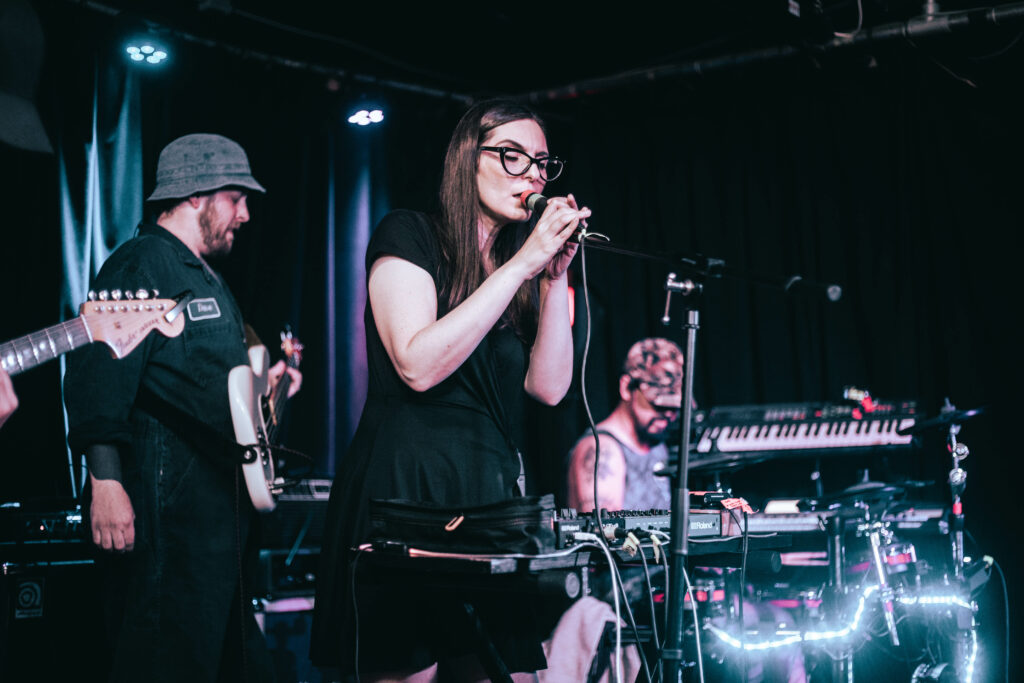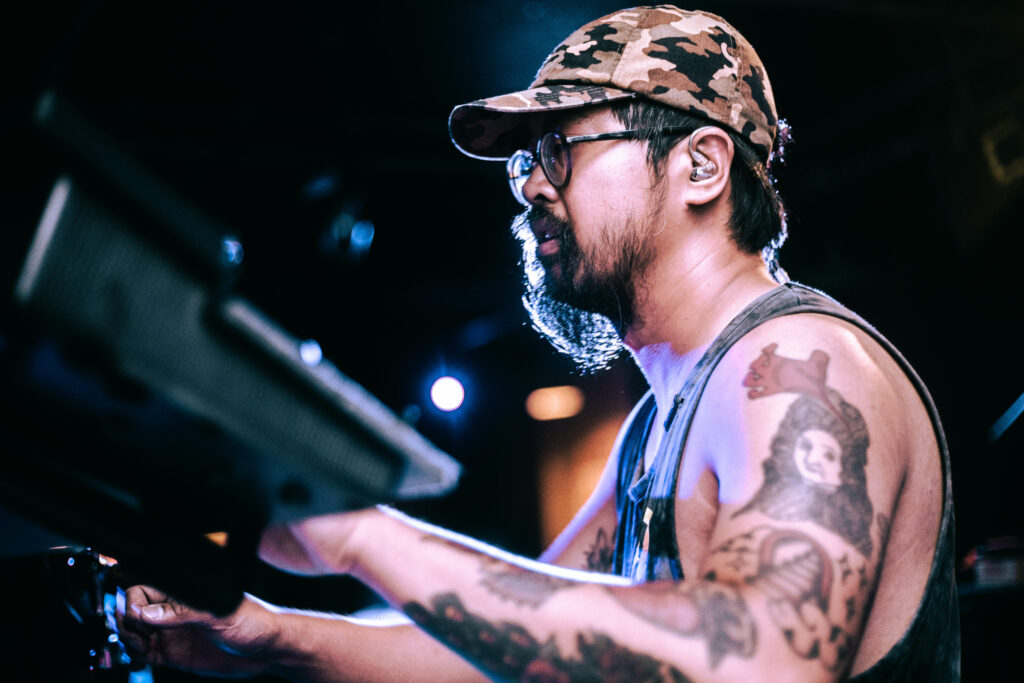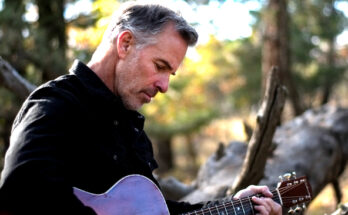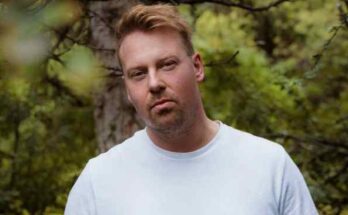ONE HUNDRED MOONS is a Toronto-based psychedelic band that has emerged in the Canadian music scene. Comprising of four members – Collin Young, Jen Vella, Justin Hunt, and NJ Borreta – this quartet crafts ethereal compositions that take listeners on a mesmerizing sonic journey. Their music is characterized by cascading walls of reverb drenched guitars, enchanting vocals, and hypnotic rhythms. Drawing inspiration from both the shoegaze luminaries of the past and the electronic experimentation of the future, ONE HUNDRED MOONS paints a vast textured soundscape.
How has your music evolved over the years, and how do you see it reflecting your personal journey?
(NJ)The biggest change for me has been my move away from heavier music. All my previous projects have been rooted in metal, hardcore, punk, and doom – One Hundred Moons is the first of my projects to have clean singing and less distorted guitars. This is also the most challenging project for me, as I am playing 3 instruments at the same time, as well as playing more technically within each instrument.
Can you share a personal or unexpected story linked to your band/stage name? (Collin) Me and Jen had been bouncing names back and forth for a while trying to land on something we didn’t hate. I had jotted down the lyrics to one of our songs in a kind of stream of conscious way and Jen pointed to a line and said “how about that?” and neither of us were against it, so it stuck.
Which artist or life event radically changed your approach to music? (NJ)The Covid-19 pandemic lockdown changed my musical tastes. I started listening to artists outside of my comfort zone of heavy music and delved deeply into other artists that I would not have otherwise listened-to. I was spinning Nick Cave’s catalogue a lot. I was drawn to his emotional intensity and melancholic delivery. Also, the Collin and Jen formed the band during the lockdown.

How would you describe your creative process? (Collin)Music comes first, usually sparked by one idea that gets work-shopped and fleshed out as much as possible before work starts on the vocals. Me and Jen will bounce ideas back and forth until we arrive at a melody, then eventually lyrics. There’s a lot of pitching ideas, constructive criticism and revision before anything is final. With the full band involved, there’s been even more opportunity to pass files back and forth so we’re able to keep polishing until we’ve got something we’re all happy with.
What is your writing process like? (Collin) See 4? I donno…
When you’re in the creative process, is there a consistent theme or emotion that drives your songwriting? (Collin) I think the goal is for the songs to consistently hit on different emotions. The drive is to come up with something that feels different and fresh, that breaks away from songwriting habits I have. When I’ve got something that feels like an idea I wouldn’t usually have, then I know it’s time to move forward with it.

Each aspect of music – writing, recording, practicing, and playing live – offers something different. Can you share a particularly meaningful moment from each? (NJ) Writing: I love the way inspiration manifests into melodies, rhythms, lyrics…it becomes tangible and actionable. Recording: To be able to listen to what we’ve created is the ultimate vindication of our work and efforts; it forges the songs into a shareable state as we intend it. It’s very fulfilling. Playing live: I enjoy the connection between the audience and our performance. It’s an abstract interplay between the sounds that we are making and people taking it in through their senses, and it comes to life when they react to us and we react to them. .
Do you take advantage of technology and collaborate remotely, or do you wait until you’re physically present with the rest of the band? (NJ)Yes, the use of technology in our creative process has been a game changer. Collin and I are able to independently track ideas via our respective DAWs and share stems/tracks with the band for their inputs. This has made our process more efficient than the methods we were used-to, which was presenting our ideas in-person – usually during our rehearsals. We are also able to explore alternative arrangements and instrumentations by tracking parts through our own instruments or midi which drastically saves us the time of having to teach each other the parts just so we can hear mock-ups of sections. I know that this isn’t a new concept for a lot of artists out there, but prior to this band, we were all coming from analogue processes..
Is there a song in your repertoire that holds a particularly deep personal meaning for you? Can you share the story or inspiration behind it? (NJ)I have a sentimental attachment to ‘Fistful of Maybes’. It was the first song we attempted to play together as a band. All odds were against us when we started, but I feel accomplished at the discoveries and learnings we had; about each other, this style of music that was new to us, the technology of looping our instruments were all tremendous breakthroughs. This song fondly reminds me of how far we’ve come.
Share one thing about the band that has never before been revealed. (NJ) Not very exciting, but we tune our guitars to C standard – who are we, HATEBREED?


